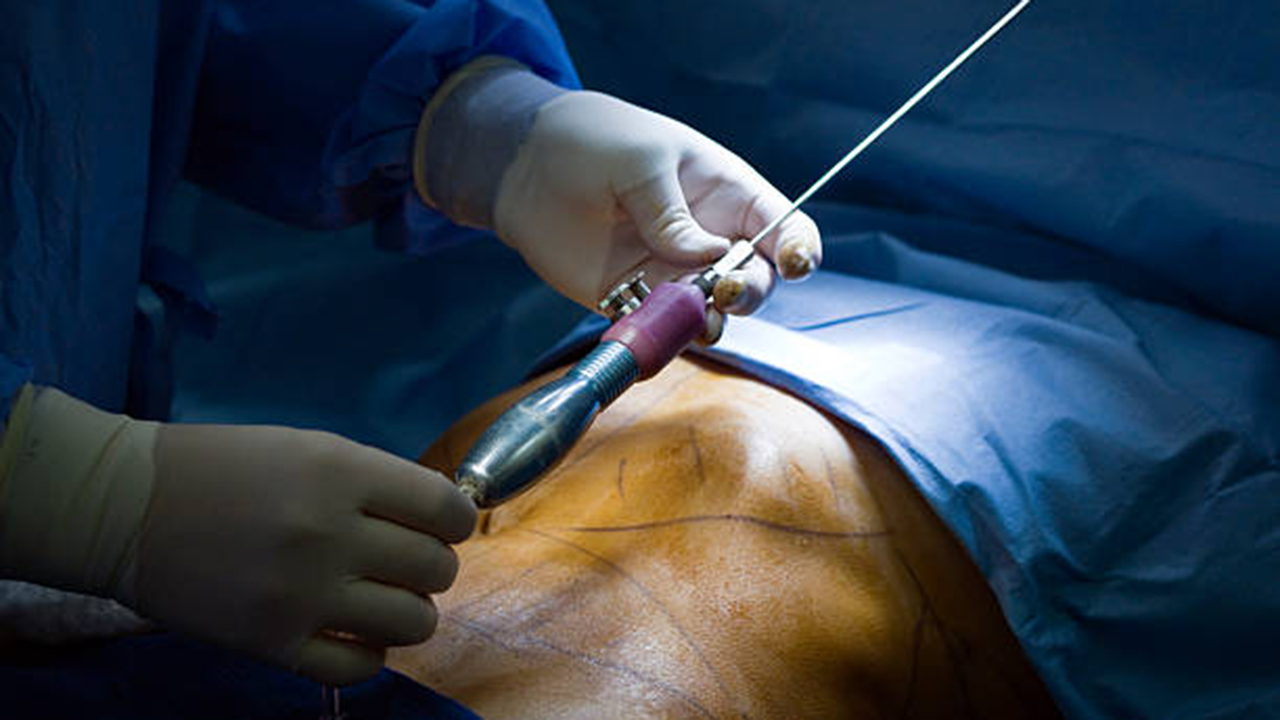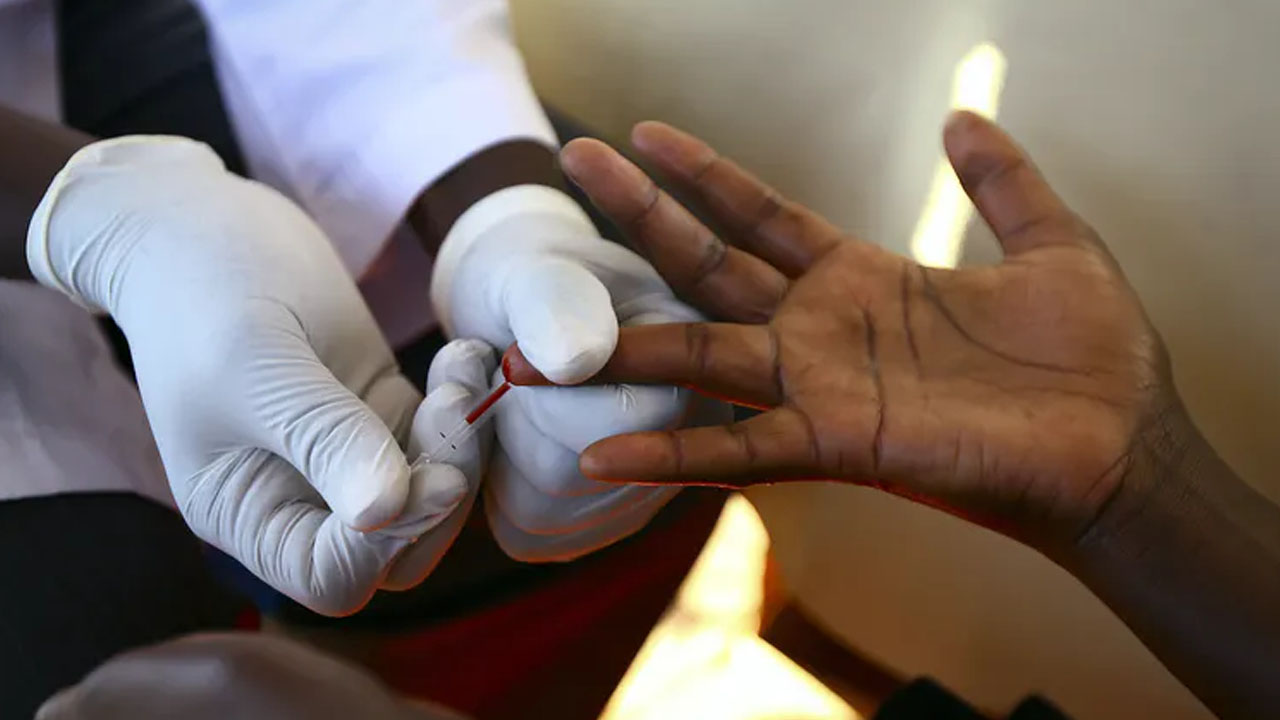
The unending search by women for chiseled, supermodel-like bodies is growing steadily despite obvious dangers and huge financial implications associated with the desire. While some look like perfect works of art after successful trips to the surgeon, the unfortunate ones’ journey to acquire “perfect” bodies either ends up being ill-fated, or leaves them with unintended outcomes owing to failed procedures. CHUKWUMA MUANYA examines the growing trend of going under the knife by some women.
Nothing lifts a woman’s spirit more than being complimented for her looks, even by a sworn enemy. Some of them are spontaneously unarmed when comments like, “You are flawlessly pretty,” “You look beautiful,” “You are charming,” “You are sexy,” “You are stunning,” etc are passed on to them.
Indeed, the immense premium that some women place on their body shapes, finds expression in the extent that they worry about their looks, even when they are as beautiful as peacocks.
It is the insatiable search by some women, for the looks of Greek goddesses, or what is colloquially termed “banging body” that has led them to combine Brazilian Butt Lift (BBL) with liposuction, and breast augmentation, as a form of losing fat (weight) and specified fat redistribution.
Be they nondescript citizens who are not satisfied with their looks, or A-list celebrities, the desire to look delectable is an ever-present demand among many females.
For instance, as pretty as reality television star, Venita Akpofure, looks in real life, the urge to look better drove her to go under the knife in 2020 for breast augmentation.
After the procedure at Quartz Clinic, in Istanbul, Turkey, the mother of two relayed her experience on her YouTube channel. Another reality television star, Abike Abiri, professionally known as Khloe, also underwent cosmetic surgery to accentuate her butts. Abiri, who participated in the Double Wahala edition of the BBNaija, in 2018, recently admitted to having cosmetic surgery via Instagram posts, and during a podcast session.
Brazilian obsession with butts
Since 2015, the number of butt lifts performed globally has grown by 77.6 per cent, according to a recent survey by the International Society of Aesthetic Plastic Surgery. It is the fastest-growing cosmetic surgery in the world.
The Brazilian Butt Lift (BBL) began in Brazil, the birthplace of aesthetic surgery, and the myth of the naturally “sticky-outy” bottom, the kind seen in countless tourist board images of bikini-clad women on Copacabana beach.
“In the global imagination, we think Brazilians are obsessed with butts,” said anthropologist Alvaro Jarrin, author of The Biopolitics of Beauty, which examines the culture of cosmetic surgery in Brazil.
In reality, not every Brazilian woman has the idealised Brazilian bottom. Nor, added Jarrin, does every Brazilian woman even want this kind of bottom.
While researching his book, he found that the BBL’s popularity depended on the class and race of the women he was talking to. If rich and white, “they would say, ‘I don’t want the body of the ‘mulatta’ (an often-derogatory term meaning biracial), I want the body of the European supermodel’.”
The surgery itself was pioneered by the Brazilian doctor Ivo Pitanguy. In a country rich in plastic surgeons, Pitanguy was known as “the pope,” as he performed a variety of procedures, and was rumoured to have prettified celebrities from Frank Sinatra to Sophia Loren while offering poorer patients subsidised treatment in his Rio clinic.
Beauty, Pitanguy believed, was a human right, though he recognised that its pursuit could be a troubling process. “The most important thing is to have a good ego,” Pitanguy was often quoted as saying, “and then you don’t need an operation.”
The culture of cosmetic surgery emerged from Brazil’s history of eugenics. Dr Renato Kehl, who founded the Eugenics Society of São Paulo in 1918, expressed his support for surgery in his book The Cure of Ugliness. His aim was simple: to “perfect” Brazil’s population through “the extinction of the black and the rainforest-dwelling races.”
In Turkey, the most popular destination for cosmetic surgery patients travelling abroad in Europe – and the third most popular in the world, after Thailand and Mexico – the limits are less conservative. Some surgeons openly advertise on social media that they will insert more than 1,000cc into a patient’s buttocks.
One of the most popular Turkish clinics, which advertises its £3,000 BBL package heavily on Instagram, is called Comfort Zone. Its timeline is a carnival of teeth, breasts, noses, and bottoms, with more intimate body parts – nipples, anuses – tastefully covered with a star-shaped “CZ” logo.
On its website cosmetic surgery appears to resemble a spa retreat, as there are photographs of villas and pools, and happy-looking people sitting round a breakfast table laden with tropical fruits arranged in the shape of flowers.
Comfort Zone was founded 10 years ago by British-Turkish businessman, Engin Yesilirmak, who previously ran a freight transportation company. Yesilirmak said he had the idea for his new venture when he arranged cosmetic surgery in Istanbul for friends and family and realised that it was easy to do and much cheaper than the UK Surgeons at the facility presently perform 200 surgeries a month, and the company houses 40 patients at any one time in its five “recovery villas.”
Among its services are rhinoplasty, BBL, breast implants, contouring and the “mommy makeover,” a surgery that aims to correct the aesthetic ruin of reproduction.
Yesilirmak suggested that women were drawn to his outfit not just by their cheap BBL package, but because of the freedom a Turkish surgeon enjoys.
“The doctors are braver here than in Europe,” said Yesilirmak. “Here we will take four litres of fat.” In some of the clinic’s Instagram posts, they proudly state the precise quantities of fat next to images of a transformed body: “4200 cc removed 1200cc in.”
The heavy cost of ‘beauty’
The risk involved in performing a BBL is not only about the quantity of fat but also how it is inserted. (Also, whether it is fat being inserted at all: several recent deaths associated with buttock augmentation occurred because the patient was being injected with silicone.)
During the operation, the danger occurs at a very precise moment: the insertion of the cannula into the buttock. As it goes under the skin, the cannula has to remain above the gluteal muscle. If it goes below, and fat enters the bloodstream, fat droplets can then coalesce, travel through the blood and cause a pulmonary embolism, a blood clot in the lungs.
In a 2019 interview, Dr Biodun Ogungbo, a neurological surgeon with a private hospital in Abuja, warned Nigerians to avoid unsafe plastic surgeries after a rash of complications arising from such surgeries.
He specifically noted that “many patients going to have liposuction or indeed fat transfers to have a bigger butt have ended up with massive infections and even a stroke in one case.”
Obviously, Ogungbo’s caution was not reckoned with as reflected in the number of complications and botched procedures within the country. For instance, a popular social media personality, Omotola Taiwo Temilade, better known as Omohtee, called out Med-Contour Hospital and Laser Centre, run by Dr. Anu Adepoju, following a botched surgery that left her with complications.
Some other victims have reportedly approached some government regulatory agencies like the Medical and Dental Council of Nigeria (MDCN), the Health Facility Monitoring and Accreditation Agency (HEFAMAA), and the Federal Competition and Consumer Protection Council (FCCPC) to seek redress.
While the HEFAMAA was forced to seal Dr Adepoju’s facility in 2019, she allegedly, in defiance of the agency, opened in another location within the same vicinity under the name Med-Contour Aesthetics and continued her operations.
Internationally, in the last three years or thereabouts, three British women – Abimbola Ajoke Bamgbose, Leah Cambridge, and Melissa Kerr – have died as a result of complications arising from BBLs in Turkey, the most popular destination for UK patients seeking cheaper aesthetic surgery.
Elsewhere, some of those who have added to the data of victims of failed plastic surgery include Joselyn Cano in Colombia; Gia Romualdo-Rodriguez, Ranika Hall, and Danea Plasencia in Miami. etc.
Dr Mark Mofid, a leading American BBL surgeon, also noted the influence of celebrities, Jennifer Lopez and Nicki Minaj, alongside a glut of imagery on social media that “had really popularised the beauty of feminine curves.” But achieving such beauty can be risky.
In 2017, Mofid published a paper in the Aesthetic Surgery Journal, which revealed that three per cent of the 692 surgeons he had surveyed had experienced the death of a patient after performing the surgery. Overall, one in 3,000 BBLs resulted in death, making it the world’s most dangerous cosmetic procedure.
As this search for curvaceous bodies heightens, and the aspiration of many to attain idealised beauty standards gets gradually entrenched, Nigeria is witnessing a startling surge in the demand for cosmetic surgeries by sexually active women, particularly those focused on enhancing their breasts and buttocks.
While the motivations are clear, questions regarding sustainability amidst economic challenges, potential health risks, and its multifaceted impacts on individuals, communities, and governmental bodies are still yearning for answers.
Cosmetic surgery in Nigeria, like in many other countries, has social and economic implications, prominent among which is social pressure, especially among women, to conform to certain beauty standards. This pressure can, sometimes lead to low self-esteem and body dissatisfaction among individuals who do not fit these standards.
The accessibility and promotion of cosmetic surgery in the country also can perpetuate narrow beauty standards, favoring Westernised features, thereby reinforcing the warped belief that certain physical features are more desirable, leading to the marginalisation of those who do not possess these traits.
The fact that the cost of cosmetic surgery in the country is prohibitive creates a disparity between the haves and the have-nots. Consequently, when the search for perfect shapes becomes a luxury afforded only by wealthier individuals, it further widens socioeconomic disparities in the country.
The growth in the number of those offering cosmetic surgery in-country notwithstanding, the practice is also a contributing factor to medical tourism as some individuals are traveling abroad to get these procedures done.
As is the case in other sectors of the economy, where high demand for service is facilitating quackery, the demand for cosmetic surgery in the country has also given rise to the presence of unregulated practitioners and illegal or unsafe practices, which pose significant health risks to individuals seeking these procedures, as the lack of oversight can result in botched surgeries, infections, and even death.

But amid economic difficulties, why do Nigerians continue to invest in this money-guzzling procedure? Prof. Ifeoma Okoye, a surgeon and oncologist/radiologist said some of them do so to escape economic realities. “Most believe that if they do it they can marry a wealthy man,” Okoye said.
The surgeon, who was a beauty queen, explained that the cost of cosmetic surgeries varies depending on the complexity and location of the procedure, adding that breast augmentation can cost anywhere from N1.5 million to N3 million, while buttock enhancement procedures range from N1 million to N2.5 million.”
She continued: “While cosmetic surgeries promise desirable outcomes, it is crucial to acknowledge the potential side effects that come with them. Infections, scarring, implant ruptures, and even psychological disorders like body dysmorphia may arise from these procedures, leading to devastating consequences for individuals seeking the perfect silhouette,” Okoye said.
On the implications of these for the individuals, the community, and the government, Okoye said: “At the individual level, cosmetic surgeries may enhance self-confidence, but they also perpetuate unrealistic beauty standards, fostering insecurities among those unable to afford such procedures.
At the community level, the emphasis on outward appearances may overshadow intellectual and character-based qualities, while the government faces the challenge of ensuring safe practices, regulation, and addressing the underlying societal pressures that drive this trend.”
Okoye called on both individuals and the government to promote body positivity, embrace diversity, and focus on holistic well-being, stressing that raising awareness about risks associated with cosmetic surgeries, promoting mental health, and celebrating natural beauty has become essential in cultivating a healthy perspective on self-image.
“We must recognise the psychological, emotional, and financial implications associated with seeking validation through physical alterations. Let us strive for self-acceptance and build a society that values inner qualities, fostering a culture of inclusivity and empowerment that extends beyond mere physical appearances,” Okoye added.
Giving his perspective on the craze for breast and bum lift, a Plastic and Aesthetics Surgeon and Privilege – Coordinator, Burns and Trauma Centre (BTC), Lagos State University Teaching Hospital (LASUTH) Annex Gbagada GH, Lagos State, Dr Taiwo Omosebi, told The Guardian that more Nigerians want boobs and bum lift to improve self-image and esteem (psychological impact).
On the other hand, Omosebi added that some women patronise the trend to enhance their femininity hence they combine liposuction with BBL and breast augmentation as a form of losing fat (weight), and specified fat redistribution.
Like Okoye, Omosebi said sexuality, femininity, and the desire to look like celebrities were responsible for the soaring trend, despite the huge financial implication for the procedures, and materials/consumables to be procured.
The burns and trauma surgeon said: “As in any surgery- anesthetic complications, excessive bleeding that may require blood transfusions, liposuction burns, fat embolism, and even death is part of the procedure.”
But the botched procedure, Omosebi said, leaves the individual “unhappy, not contended, increased hospital stays and visits, possibly increased costs in managing complications depending on severity, reduced/delayed productivity, and financial burden of burial costs in situations where death occurs.”
Speaking on how the procedures could be made safer for patients through the adoption of best practices, Omosebi said patient selection and adequate preparation to enhance procedure safety is very important, just as he recommended the appreciation of expertise and limitations of procedures, based on levels of skills and knowledge.
He added that good teamwork and an effective multi-disciplinary approach to patient care also constitute the sine qua non for successful procedures, and recommended efficient monitoring of patients intra-operatively and immediate post-operatively with a high index of suspicion for complications, in addition to establishing swift channels for referral once the need arises.
The place of effective monitoring of patients intra-operatively and immediate post-operatively with a high index of suspicion for complications cannot be over-emphasised, especially given the warning by Dr Ogungbo that many patients that have liposuction or fat transfers have bigger butts have ended up with massive infections, with one leading to a stroke.
This much was attested to by Dr Ananya Mandal, in an article titled “History of Liposuction,” which was published in an online journal News Medical, where she noted that like most other surgeries, liposuction is associated with several side effects and complications.
Mandal, a medical doctor, stressed that while side effects are mostly temporary and subside within a few weeks or months, some complications can be life-threatening and require medical attention to prevent morbidity, and even death.
She said some of the serious complications of liposuction include allergic reactions to the materials or medications used during the procedure, as well as, infection, which may occur if bacteria enter surgical incisions made.
“As the surgeon cannot see the cannula while they are removing fat, there is a risk of puncturing an internal organ such as the intestine. This can usually be corrected surgically but sometimes the event can lead to fatal consequences,” Mandal said.
She said thromboembolism and fat embolisation are other rare complications. She said, here, blood clots or fat emboli are released into the bloodstream and can lodge in the lungs (pulmonary embolism) or brain (cerebral embolism). Both conditions can become life-threatening if they are not treated early.
Mandal said sometimes the cannula movement could lead to friction burns that affect the nerves or skin. She said in cases where ultrasound-assisted liposuction is used, heat from the ultrasound device could damage the skin or deeper tissue.
She further explained that since fat contains a lot of fluid that gets removed during liposuction, if fluids injected by the surgeon before the procedure get much, it could lead to a fluid imbalance, which can affect the patient’s heart, lung, and kidneys.
“If too much saline is injected, or if a fluid contains a high concentration of lidocaine, lidocaine poisoning may occur which can cause a tingling sensation, numbness, and even seizures, loss of consciousness, and cardiac arrest,” she said.
Indeed, the rush for a new body – breast implants, tummy tuck, Brazilian butt lift – has some downsides. Women who cannot afford professional treatments have resorted to deadly and illegal injections with substances found in home-improvement stores. Those who survive are left with debilitating scars and lingering health issues.






